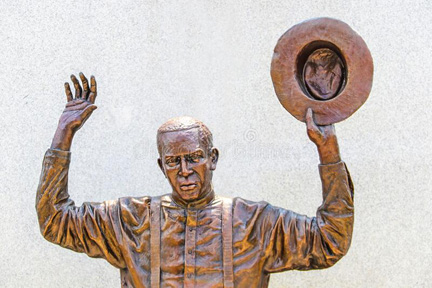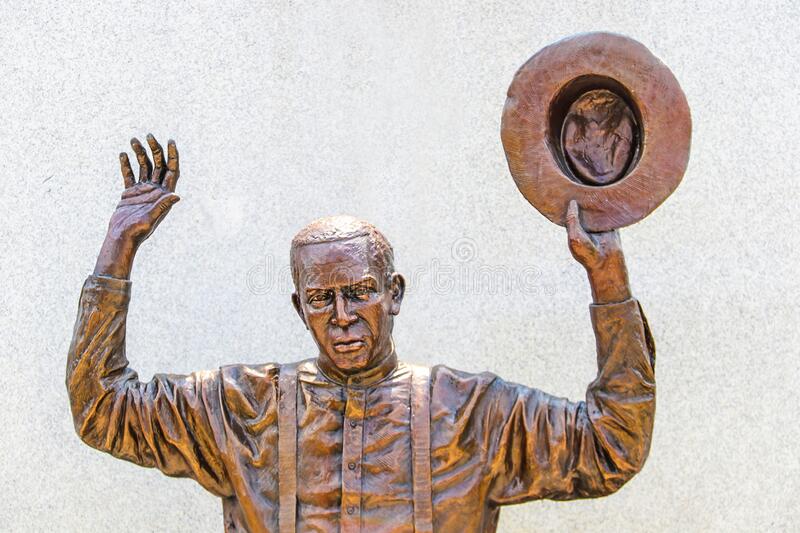 CRT encourages accurate teaching of our nation’s history. If we don’t teach our children accurate history, young people will never learn from our nation’s failures or appreciate its successes. Unfortunately, some people only want to teach children a whitewashed version of history that portrays America as the mythical shining city on the hill it claims to be.
CRT encourages accurate teaching of our nation’s history. If we don’t teach our children accurate history, young people will never learn from our nation’s failures or appreciate its successes. Unfortunately, some people only want to teach children a whitewashed version of history that portrays America as the mythical shining city on the hill it claims to be.
W.E.B DuBois got it right when he wrote in “The Souls of Black Folk” (1903), “The problem of the Twentieth Century is the problem of the color-line.” The Kerner Commission (1968), a study published three weeks before Martin Luther King Jr was assassinated, warned, “Our nation is moving toward two societies, one black, one white; separate and unequal.”
Anti-CRT laws deny a systemic race problem and attribute the racial disparity to individual prejudice. Consequently, many states forbid schools from teaching history from a Critical Race Theory perspective. Why? Because CRT cites irrefutable documentation of systemic racism. Some claim these perspectives make white people feel bad about themselves but offer no evidence.
Criminal defense and Civil Rights lawyer Jeffery Robinson wrote: “Who We Are: A Chronicle of Racism in America.” Mr. Robinson “draws a stark timeline of anti-Black racism in the United States, from slavery to the modern myth of a post-racial America.”
Mr. Robinson prefaced his talk with, “Don’t believe a word I say about it. Just listen to what Americans said.”
A Virginia law (1662) declared, “Children of enslaved mothers are also enslaved.” Because some of the children sired by white enslavers were light-skinned enough to pass for white, Virginia needed to clarify that looking white didn’t mean you were free.
Another Virginia law (1669) declared, “An enslaved person’s death while resisting a master is not a felony.” Recent news reports show multiple videos of unarmed Black people being killed by police while running away. Apparently, killing unarmed Black people “while resisting a master” is still not a felony today.
In 1896, the United States Supreme Court decided Plessy v. Ferguson. “The law of America is separate but equal.” After Plessy, southern states passed laws that took away the Black vote. Before Plessy, there were about 130,000 registered Black voters in Louisiana. Two years later, there were only 5,000. Suppressing the Black vote is a practice that continues today.
The four stanzas of the original Star-Spangled Banner were reduced to one to conceal the author’s racist roots. The third stanza reads, “No refuge could save the hireling and slave from the terror of flight or the gloom of the grave.” With this line, author Francis Scott Key, a wealthy enslaver, advocated killing enslaved people who fought with the British to secure the freedom denied them by America. Click these links to compare our national anthem’s original and edited versions.
Why is hiding our racist past so important to some? To quote George Orwell, “Who controls the past controls the future” and “Who controls the present, controls the past.” Unscrupulous politicians often reframe history to appeal to the prejudices of their base to get elected.
For example, Texas has legislated standards that must be included in every social studies curriculum, yet one state senator wants to change that. The bill seeks to remove most mentions of women, people of color and “requirements that include Native American history, work by civil rights activists, historical documents related to the Chicano movement, women’s suffrage, and writings by Martin Luther King Jr., Susan B. Anthony, and Frederick Douglass.” The bill also removes the requirement to teach the history of white supremacy, including slavery, the Ku Klux Klan, and how it is morally wrong.
Academic researchers say teaching systemic racism is integral to teaching history accurately, and CRT is a catch-all phrase used to remove anything negative from American history. Still, anti-CRT legislation has been introduced in 20 states to “ban discussion (of systemic racism) and (prevent) any discussions about bias, privilege, discrimination, and oppression.” These parameters also include sexual orientation and gender identity.
Unfortunately, anti-CRT sentiment has raised its ugly head in Maine. In August 2022, the Dixfield school board allowed a few angry parents to limit what all students were allowed to read by removing the book “Gender Queer” from the high school library. Fortunately, the Buxton school board voted to keep the same book.
Maine school systems would do well to follow Buxton school Superintendent Clay Gleason’s advice: “We educate all students who walk through our doors, and we have to make sure one parent’s views do not override the opinions of others.”
